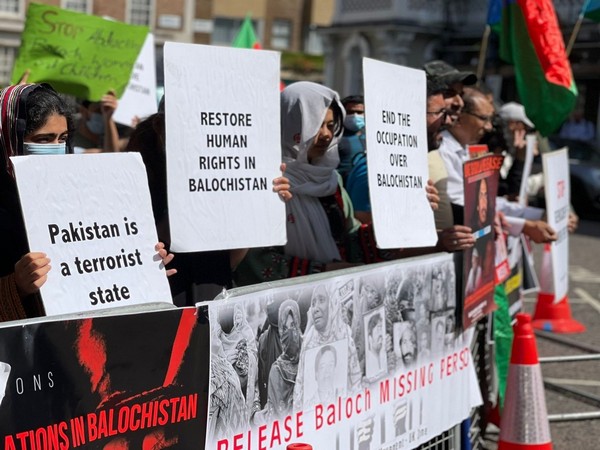China pushes Gulf nations to deport Baloch activists to Pakistan: Report
China is exploiting its diplomatic channels to put pressurize on Gulf states including UAE to deport Baloch activists to Pakistan who it believes are opposing Chinese investment, media reports said.

- Country:
- China
China is exploiting its diplomatic channels to put pressurize on Gulf states including UAE to deport Baloch activists to Pakistan who it believes are opposing Chinese investment, media reports said. Diplomat citing Abdullah Abbas, information secretary of the independent Human Rights Council of Balochistan said that following an attack on the Chinese consulate in Karachi by Baloch separatist insurgents in 2018, the United Arab Emirates deported Rashid Hussain, a Baloch activist, to Pakistan.
Before the deportation, they held him incommunicado for seven months. According to Abbas, it could be due to Chinese pressure. In February this year, Abdullah said another cousin of Hussain was arrested by Emirati intelligence and forcefully deported to Pakistan under the same circumstances, reported Diplomat. "We have substantial evidence Beijing continuously pushes the Gulf states, including the United Arab Emirates, to hand over to Pakistan Baloch activists it considers are opposing Chinese investment," Abbas said.
China is walking on a tight rope vis-a-vis its relations with Pakistan as mounting attacks by separatists, who blame the country for exploiting the resource-rich regions of Balochistan and Sindh, invoked deep worries for Beijing, media reports said. Baloch militants have recently ramped up attacks and suicide bombings on Pakistani law enforcement agencies and Chinese installations inside and outside the Balochistan region. As per The Diplomat these separatists are now choosing soft targets instead of high-ranking Chinese officials because of the increased security.
There have been a series of attacks on Chinese in Pakistan in the past with the most recent one on September 28 which lead to the targeted killing of a Chinese Pakistani dentist in Karachi. The suspect escaped from the scene. Those killed and injured were identified as Ronald Chow, Richard Hu, 74, and his wife Margaret, 72. Apart from the Baloch separatists, there is now an emergence of a new militant group in Pakistan which goes by the name Sindhudesh People's Army from Pakistan's southern Sindh province.
In a statement, the group has claimed the responsibility for the attack however, as per the available reports not much is known about the group. Calling this a "new breakaway group", Karachi-based journalist Zia Ur Rehman said it could be behind such attacks on Chinese nationals in Karachi, Sindh which took place in past, reported The Diplomat. "We warn China to stop its exploitative projects on our homeland and leave immediately," Sindhudesh People's Army said in a statement, reported The Diplomat citing reports.
All of these attacks and bombing are ongoing despite strict security measures assured by the Pakistani authorities to guard Chinese citizens especially those who are working on the China-Pakistan Economic Corridor (CPEC). Recently security in Pakistan seems to have become less effective. "Karachi is one of the largest trading hubs of Pakistan in terms of trade, investment, and economic activities. It also has its geostrategic importance. This is why the Chinese are an easy target in this crowded city," said Journalist Rehman as quoted by the media portal.
"Apart from the Karachi Consulate attack in November 2018 and the April suicide bombing on Confucius Institute [workers], in the past, there had been low-scale targeted attacks on Chinese nationals, too. Militants with such low-scale attacks have been receiving widespread media attention globally," he added. Rehman said soft targets are a new tactic being played out by these groups however, such attacks still create media hype.
"China had already grown concerned about the near misses at the consulate in Karachi and the attack in Quetta. Still, the Dasu attack last July in which 9 Chinese were killed really crossed a threshold - a major loss of life on a protected project - and the Confucius Institute attack reinforced that, even if it was different groups involved in the different cases," Small said. "The concern on China's part is that the protection measures no longer seem to be working as well, they don't entirely understand why, and they have been asking questions about, for instance, having more of their own security personnel in the country."
In another sign of mistrust between the two nations, the Chinese envoy to Pakistan, Nong Rong, held a series of one-to-one meetings in Islamabad with politicians from Balochistan to discuss Baloch nationalists' grievances with China. But Baloch rights activists claim Beijing has taken a less gentle approach. Earlier this month, The Diplomat citing reports said that Chinese economic engagement with Pakistan has decreased, and the work on CPEC dramatically slowed down, particularly during former Prime Minister Imran Khan. (ANI)
(This story has not been edited by Devdiscourse staff and is auto-generated from a syndicated feed.)
ALSO READ
Protests Ignite in Pakistan Amidst Imran Khan's Jail Sentence Controversy
Imran Khan's Rallying Cry: Protests in the Wake of Controversial Verdict
Public Outcry as Imran Khan and Wife Receive 17-Year Sentences in Controversial Toshakhana Case
Imran Khan Sentenced: A New Chapter in Legal Turmoil
Imran Khan and Bushra Bibi Face 17-Year Sentence in Corruption Trial










